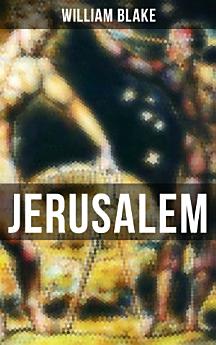JERUSALEM
дец 2017. · e-artnow
E-knjiga
5
Stranica
reportOcene i recenzije nisu verifikovane Saznajte više
O ovoj e-knjizi
The poem was inspired by the apocryphal story that a young Jesus, accompanied by his uncle Joseph of Arimathea, a tin merchant, travelled to what is now England and visited Glastonbury during the unknown years of Jesus. The legend is linked to an idea in the Book of Revelation describing a Second Coming, wherein Jesus establishes a new Jerusalem. The Christian Church in general, and the English Church in particular, has long used Jerusalem as a metaphor for Heaven, a place of universal love and peace. In the most common interpretation of the poem, Blake implies that a visit by Jesus would briefly create heaven in England, in contrast to the "dark Satanic Mills" of the Industrial Revolution. Blake's poem asks questions rather than asserting the historical truth of Christ's visit. Thus the poem merely implies that there may, or may not, have been a divine visit, when there was briefly heaven in England. William Blake (1757 – 1827) was a British poet, painter, visionary mystic, and engraver, who illustrated and printed his own books. Blake proclaimed the supremacy of the imagination over the rationalism and materialism of the 18th-century. Largely unrecognised during his lifetime, Blake is now considered a seminal figure in the history of both the poetry and visual arts of the Romantic Age.
Ocenite ovu e-knjigu
Javite nam svoje mišljenje.
Informacije o čitanju
Pametni telefoni i tableti
Instalirajte aplikaciju Google Play knjige za Android i iPad/iPhone. Automatski se sinhronizuje sa nalogom i omogućava vam da čitate onlajn i oflajn gde god da se nalazite.
Laptopovi i računari
Možete da slušate audio-knjige kupljene na Google Play-u pomoću veb-pregledača na računaru.
E-čitači i drugi uređaji
Da biste čitali na uređajima koje koriste e-mastilo, kao što su Kobo e-čitači, treba da preuzmete fajl i prenesete ga na uređaj. Pratite detaljna uputstva iz centra za pomoć da biste preneli fajlove u podržane e-čitače.







